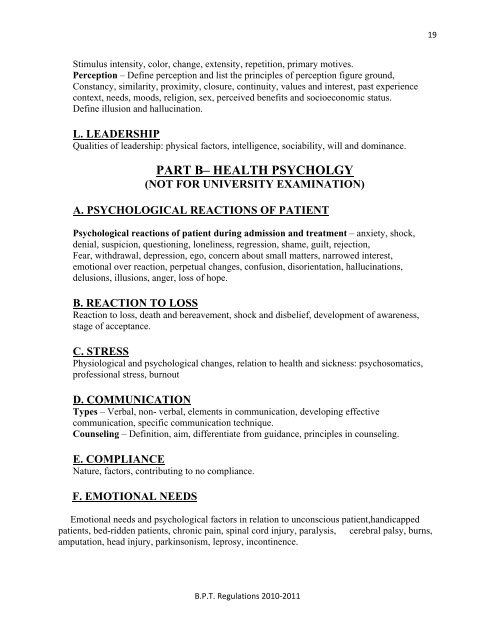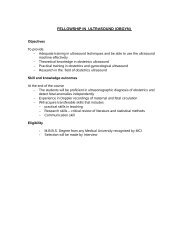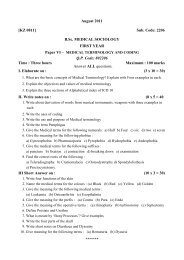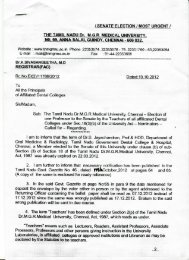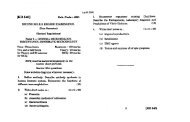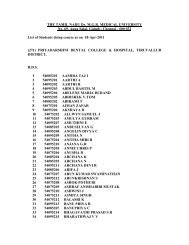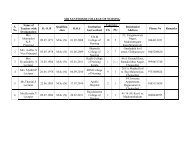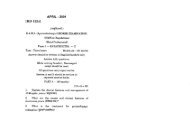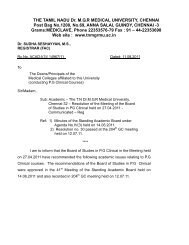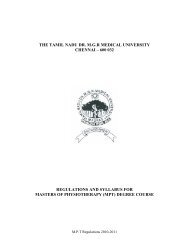download - PSG College of Physiotherapy
download - PSG College of Physiotherapy
download - PSG College of Physiotherapy
Create successful ePaper yourself
Turn your PDF publications into a flip-book with our unique Google optimized e-Paper software.
Stimulus intensity, color, change, extensity, repetition, primary motives.<br />
Perception – Define perception and list the principles <strong>of</strong> perception figure ground,<br />
Constancy, similarity, proximity, closure, continuity, values and interest, past experience<br />
context, needs, moods, religion, sex, perceived benefits and socioeconomic status.<br />
Define illusion and hallucination.<br />
L. LEADERSHIP<br />
Qualities <strong>of</strong> leadership: physical factors, intelligence, sociability, will and dominance.<br />
PART B– HEALTH PSYCHOLGY<br />
(NOT FOR UNIVERSITY EXAMINATION)<br />
A. PSYCHOLOGICAL REACTIONS OF PATIENT<br />
Psychological reactions <strong>of</strong> patient during admission and treatment – anxiety, shock,<br />
denial, suspicion, questioning, loneliness, regression, shame, guilt, rejection,<br />
Fear, withdrawal, depression, ego, concern about small matters, narrowed interest,<br />
emotional over reaction, perpetual changes, confusion, disorientation, hallucinations,<br />
delusions, illusions, anger, loss <strong>of</strong> hope.<br />
B. REACTION TO LOSS<br />
Reaction to loss, death and bereavement, shock and disbelief, development <strong>of</strong> awareness,<br />
stage <strong>of</strong> acceptance.<br />
C. STRESS<br />
Physiological and psychological changes, relation to health and sickness: psychosomatics,<br />
pr<strong>of</strong>essional stress, burnout<br />
D. COMMUNICATION<br />
Types – Verbal, non- verbal, elements in communication, developing effective<br />
communication, specific communication technique.<br />
Counseling – Definition, aim, differentiate from guidance, principles in counseling.<br />
E. COMPLIANCE<br />
Nature, factors, contributing to no compliance.<br />
F. EMOTIONAL NEEDS<br />
Emotional needs and psychological factors in relation to unconscious patient,handicapped<br />
patients, bed-ridden patients, chronic pain, spinal cord injury, paralysis, cerebral palsy, burns,<br />
amputation, head injury, parkinsonism, leprosy, incontinence.<br />
B.P.T. Regulations 2010‐2011<br />
19


